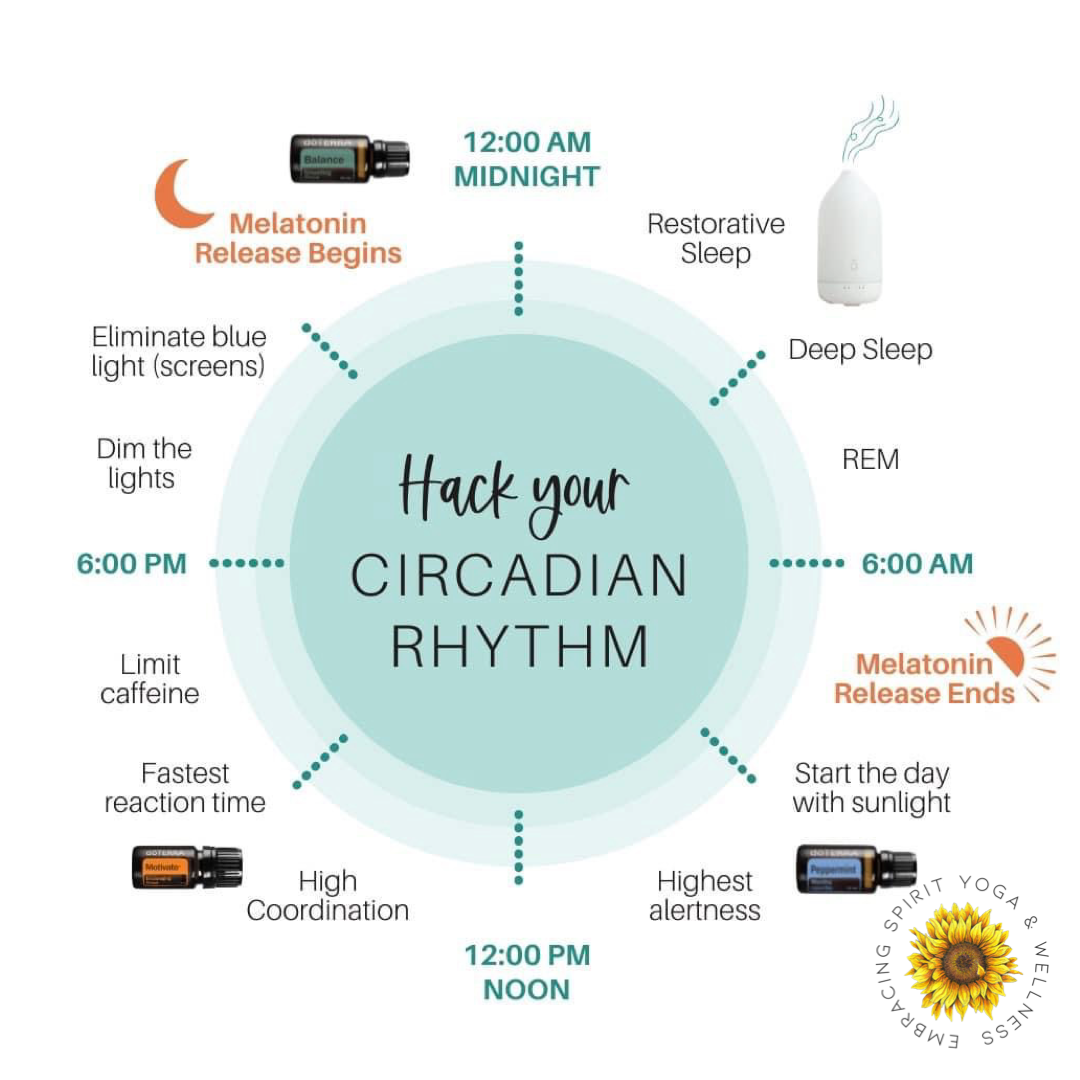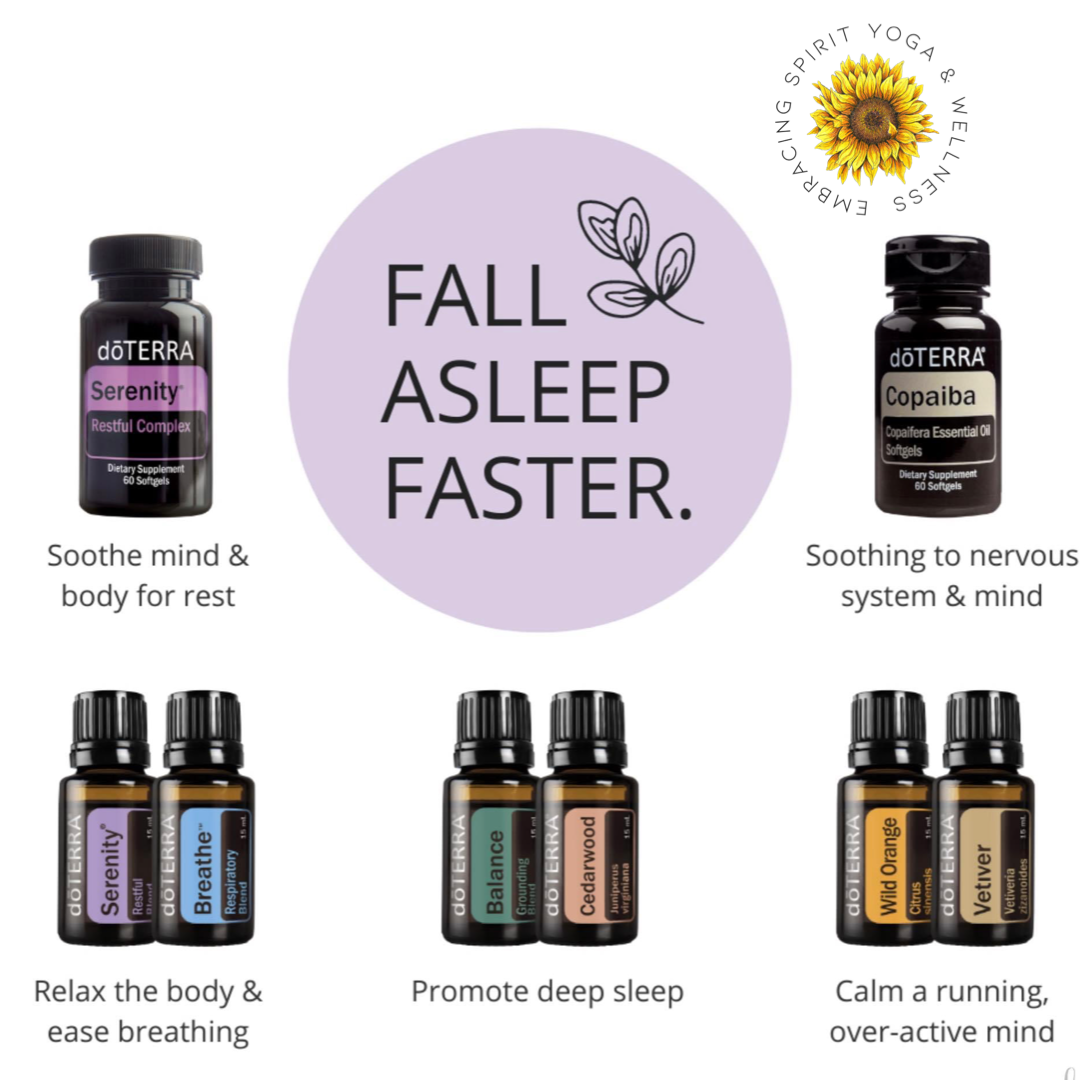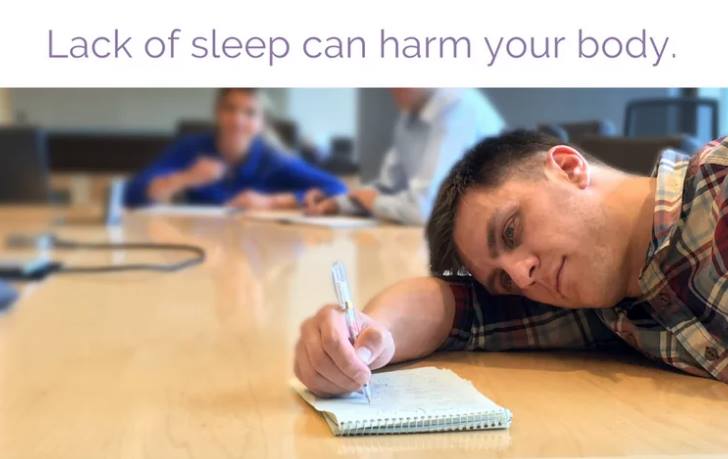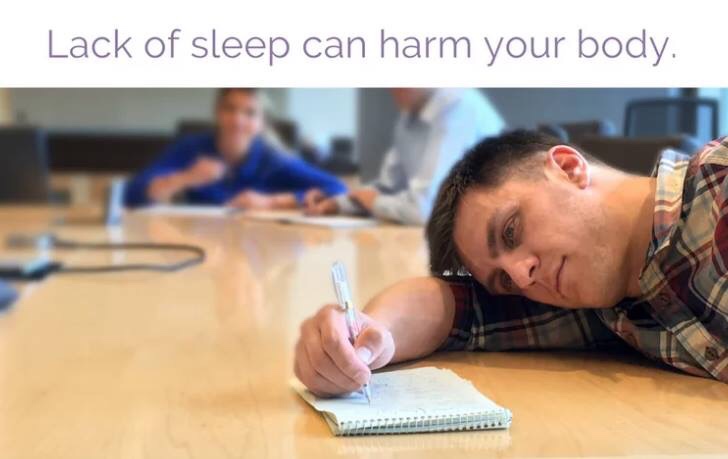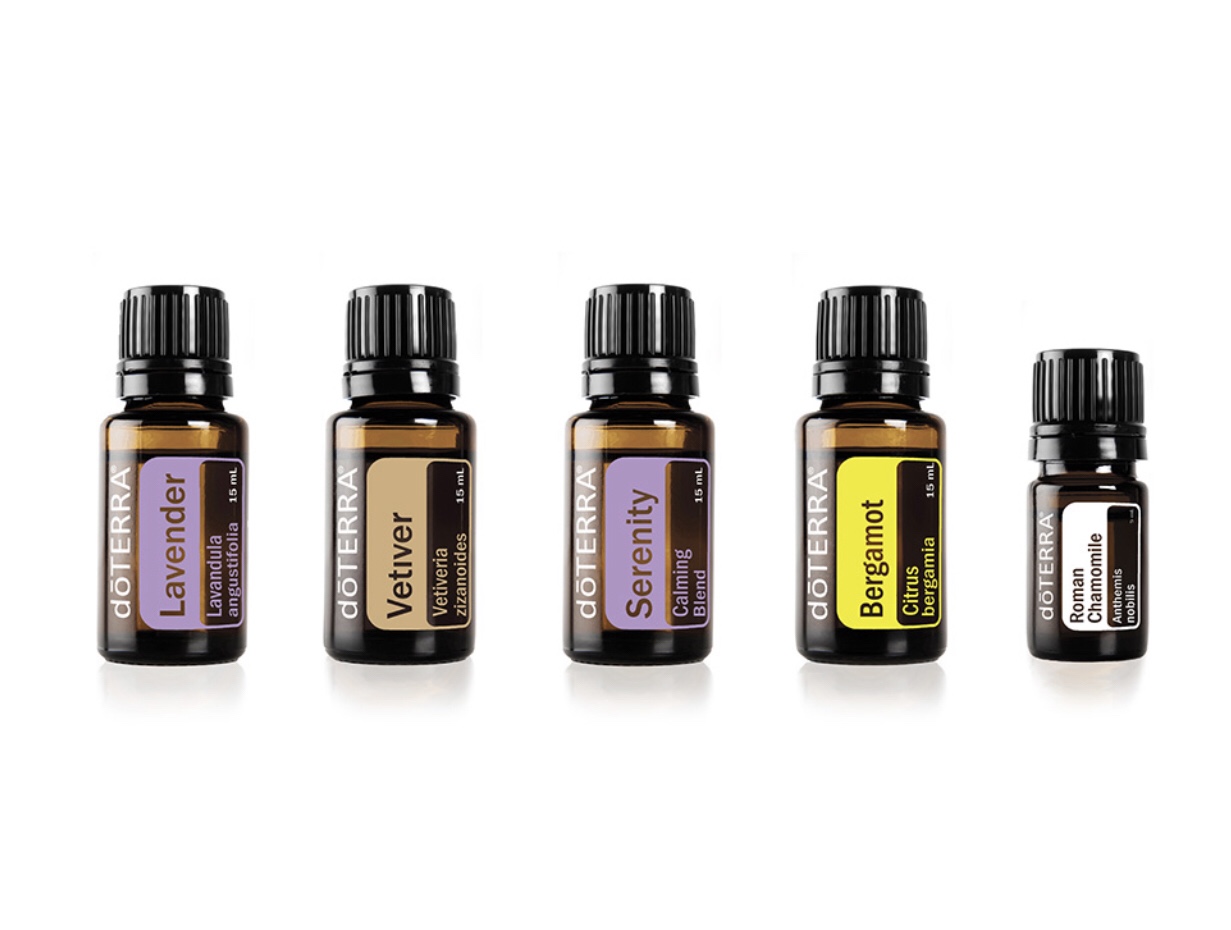Everyone knows that diet and exercise are key components of any healthy lifestyle. Another key pillar of health, equally important and arguably even more so, is sleep. Although the amount of sleep a person needs varies, experts recommend that adults get at least seven to eight hours of sleep every night. Unfortunately, about 33 percent of Americans are not getting the recommend amount of sleep per night.
I am a believer in early to bed early to rise! I typically go to bed by 830pm, read for awhile (okay… a sentence or two) and wake around 5am. That is 8.5 glorious hours of rest. This is a perfect night.
However, there are some nights my mind or my body is racing and I can’t fall asleep. I use essentials oils and meditation and breathing techniques to help me settle down my thoughts so I can sleep.
In my diffuser next to my bed is usually cedarwood, lavender and orange. Sometimes I toss in vetiver and bergamot. Other times I go with a simple lavender. I also apply a sleepy blend to my feet and heart and it is: roman chamomile, lavender, orange, vetiver and fractionated coconut oil in a roller.
Why Is Sleep So Important?
Sleep doesn’t exist to just pass time or to keep us from working 24 hours a day. Sleep is important because it is inherently physically and mentally healing, and it allows for our bodies to not only recoup from the stress of everyday life, but also to recharge and refocus. Depriving your body of sleep has been associated with many health risks and places a tremendous burden on virtually every organ system in your body. Lack of adequate sleep affects our ability to lose, or maintain, a healthy weight; influences how we feel, learn, and behave; and negatively impacts our cardiovascular health and overall wellbeing.
So What Can I Do About It?
Of course, life will always find a way to present obstacles that are out of our control, from a sick child to a last minute work project to a neighbor in need. Each of these will undoubtedly affect how we sleep. However, we must focus on what we can control, and fortunately there are several tips and techniques that you can apply to help ensure you are not only getting enough sleep but also getting quality sleep.
Tips for a Better Night’s Sleep
*Eat Well and Maintain a Healthy Exercise Routine – Eating a healthy diet and getting plenty of exercise keeps our weight in check, but it also helps with sleep. Eating high carbohydrate foods floods the muscles with glucose, causing involuntary muscle movements during sleep, which disrupts rest. Exercising too close to bedtime ramps up metabolism and body temperature and can make it difficult to fall asleep.
*Maintain a Rhythm – Try to maintain a regular sleep schedule, going to bed at the same time and waking up at the same time. Creating this rhythm helps regulate your body’s internal clock and may help you sleep better.
*Just Say No to Alcohol, Caffeine, Nicotine, & Electronics-
All of these can make going to sleep difficult. Don’t drink alcohol or caffeinated drinks too close to bedtime. Remove all electronics from the bedroom, including TVs, computers, and other electronic devices. Darkness will help your body begin producing melatonin, a hormone that naturally regulates sleep.
*Keep Cool Make sure your bedroom is a quiet, dark, and relaxing environment, which is neither too hot, nor too cold. Your bed and pillows should be supportive, yet comfortable. If you experience shoulder, hip, or back pain in the morning, you can be sure you did not rest as well as you could have. It may be time for new bedding.
*Wind Down – Your body needs time to shift into sleep mode, so spend the last hour before bed doing a calming activity such as reading or taking a warm bath. Certain drinks, such as chamomile tea, may be relaxing and non-stimulating.
*Use Calming Essential Oils – Essential oils like Lavender and Bergamot are rich in linalool and linalyl acetate, compounds that have well-known relaxing properties. These oils can be diffused aromatically in the bedroom to create a calming and peaceful environment, perfect for getting a good night’s sleep. They can also be used topically and taken internally to calm the nervous system, promote relaxation, and lead to a restful sleep.
To learn more about the basics of essential oils check out this handy guide.
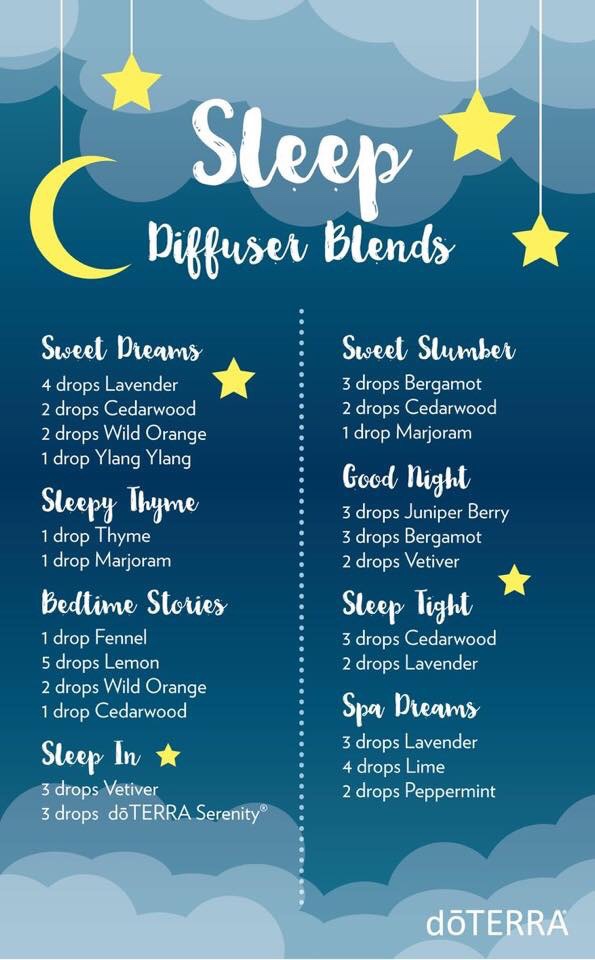
Like this:
Like Loading...
